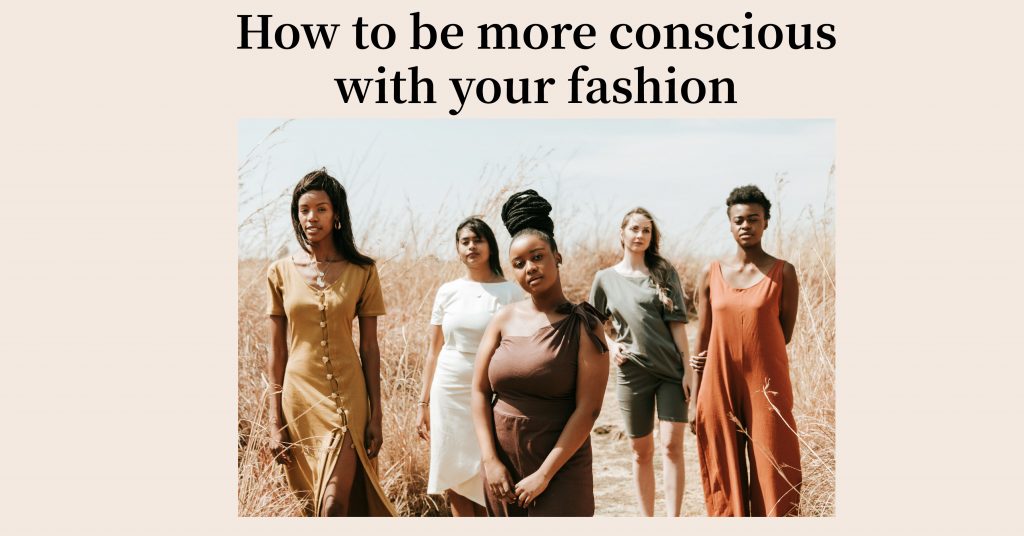
It is an obvious fact, but one that is ignored or not deeply considered, that humanity is living faster pace of life than ever before. We have even come up with terms to describe how fast we are living and we have normalised this pace of life. “Fast food”, “fast money”, and more commonly “fast fashion”. As we are caught up in trying to keep up, it misses us that the faster we live, the more it takes from us and our environment.
Life is better when you slow down or choose to move in stillness. It is that 6-minute slow-tempo ballad that gets the butterflies in your stomach going, or the rewarding taste of wine that has matured in a barrel for years. Oprah Winfrey made a powerful statement about the power of stillness when she said, “You just have to be still to find it. And when you do, you’re on the way to finding the fullest expression of you.” This is a word on the slow fashion movement.
Slow fashion can be defined in a number of ways and each definition is valid. One way to define slow fashion is that it is the process of creating and retailing garments that are of high quality and last for long periods of time. Another way to define slow fashion is to describe it as a movement that vouches for the manufacturing of garments that applies ethical and fair labour practices while lowering the carbon footprint. Another way to define slow fashion is to describe it as an eco-considerate lifestyle in which garments are worn to raise awareness about our duty to preserve the environment we live in.
Slow fashion has a diverse index of definition, which is why slow fashion can also be referred to as ethical fashion or sustainable fashion.
Here are a few easy and doable ways to be more conscious with your fashion.

1. Think a little deeper about your purchases:
If you are thinking about making a purchase on an item of clothing, especially a purchase that may be on the impulsive side of your personality, take the advice given by Oprah at the beginning of this read and be still. Ask yourself questions about how important that item is. Ask yourself if it is good for your wallet in the short and long term (remember, the cost of clothes does not just end at its price tag. The cost of clothes also includes maintenance and the durability span). Look into where and how it was made, as well as the track record of the clothe maker.
2. Buy better:
When you have thought a little deeper about a particular garment that you want to buy, look into whether or not there are alternatives. Consider alternatives that have better price points (especially where spending money on maintenance and durability is concerned), better manufacturing processes, better and transparent labour practices. Remember to look for local shops you can buy eco-garments from and support, like these Simple Recycled Plastic T-shirts and our Made In Africa Fashion.
3. Review your wardrobe:
Applying the good-old methodology of needs and wants, sort out the clothes into two categories. Namely, clothes you where often (once a week or more) and clothes that you do not wear often (twice a month or less). It is likely that you need to dispose of the clothes in the latter pile. Look into ways of disposing your clothes in an eco-conscious manner ,such as giving your clothes away to loved ones or charities. If you have clothes that you do not wear often, yet find it difficult to let go, you can is to reuse those clothes for a different purpose (i.e. cutting up your t-shirt to make clothes for washing dishes or tying your flowers into a bouquet). You can also redesign the aesthetic of your clothes by sketching or painting designs over them to increase their sentimental value.
4. Educate yourself and stay curious:
Living an eco-friendly life is a fun and informative way of life, because you are constantly learning about our environment and the many obviously and subtle ways which human life intersects with the environment. When it comes to clothing, find resources that provide information about about the way clothes are made and remind yourself of better alternatives. When shopping for clothes in a manner that is eco-conscious, build relationships with business (owners) and find out more about their business model, manufacturing and labour process, as well as how best you can support beyond your purchase.
Slow fashion is one of the many ways we at Conscious Lifestyle Collective are encouraging you to enjoy a better quality of life by thinking and behaving in ways that are an eco-conscious. There are also plenty of eco-conscious opportunities to be seized and created in the world of slow slow fashion which are beneficial for us and the environment.

